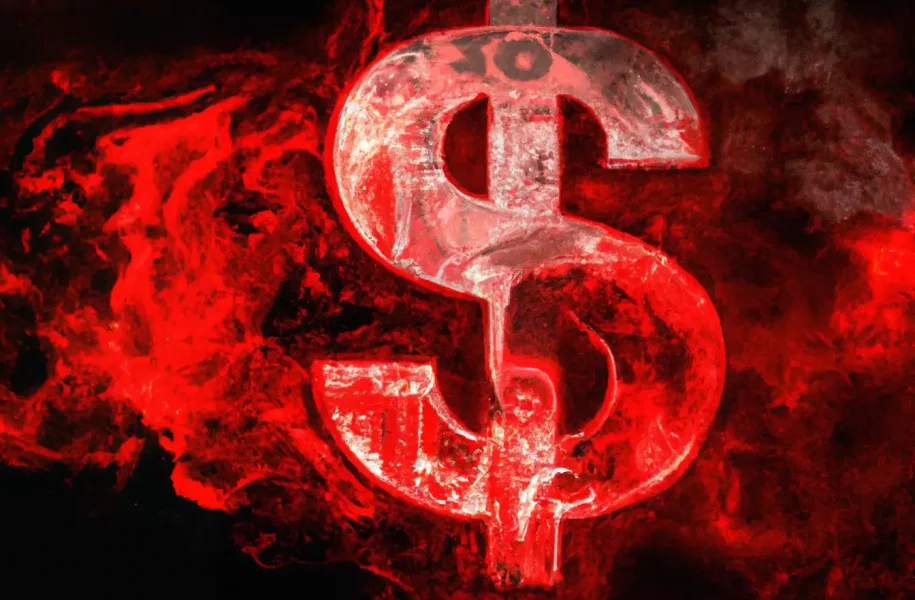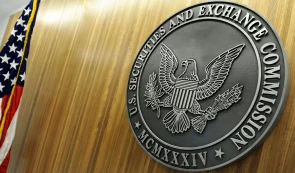The Looming Threat of a New Banking Crisis: Underwater Bonds and the Fatal Flaw in Bond Holdings

Renowned economist Nouriel Roubini, who predicted the 2008 banking crisis, has raised concerns about the danger posed by "underwater" bonds that make up a significant portion of the banking sector's assets.
These bonds, which caused the sudden collapse of Silicon Valley Bank last week, could trigger a banking crisis that could quickly spiral out of control, potentially affecting large investors, pension funds, and asset managers.
The problem
As Politico reported, Roubini highlighted the heart of the problem: Silicon Valley Bank built up a large bond portfolio while interest rates were near zero.
However, when rates rose, the value of these bonds plummeted, causing the bank to suffer “unrealized losses.”
Unfortunately, the bank was forced to sell its bond portfolio in an unfavorable market when the tech sector ran into trouble, resulting in realized losses of $1.8 billion. Roubini warns that any shock could trigger a similar chain reaction in other banks.
FDIC data shows $620 billion of unrealized losses on securities and the average U.S. bank having about a third of its tier-one capital at risk.
Europe’s problem
Roubini’s concerns about Europe are even more severe since unrealized losses on bond portfolios could be much graver.
Europe, and especially Switzerland, were among the first places globally to push ahead with negative interest rates, making the sensitivity of local bond portfolios to rising interest rates much larger. Additionally, bank profitability on the continent has been significantly lower, placing further pressure on capital buffers and, by extension, the value of bank shares.
Unrealized losses
An unrealized loss is a limbo state for a financial asset, where it can be worth either what you paid for it plus interest or much less if you are forced to sell it before its maturity date.
For instance, if you take out a loan to start a business, using your home as collateral, and the property market drops by half, you can still make repayments and retain your house.
However, if the business cycle turns against you and you have to sell the house, it may not cover your liabilities, resulting in bankruptcy. Similarly, in this case, the collateral is the bond holdings, whose value has declined significantly in the past year due to central banks aggressively hiking interest rates. Therefore, Roubini warns that banks’ bond holdings would not be sufficient to cover their liabilities if they had to make a quick sale. Any shock could trigger a full-blown banking crisis.
READ MORE: Elon Musk Shares Warning about the Banking Crisis – Bitcoin to become “Freedom Money”?
Regulatory failure
Roubini points out that the system has been blind to the severity of the issue since banks, unlike other financial institutions, were never required to mark these assets to their present value, known as “mark-to-market” accounting. Therefore, regulators did not detect the issue, which was a significant regulatory failure.
The system has $20 trillion of U.S. Treasuries (government bonds), and banks’ losses are emerging since they do not have to mark to market.
Different perspectives
However, not everyone is convinced. S&P Global, a ratings agency, disagrees with Roubini’s views, saying that it considers risks from unrealized losses manageable at this stage for the banks it rates.
Credit Suisse, the European bank under the most pressure, has denied any exposure related to bad bond holdings. Thus, the debate on this issue continues.
Nouriel Roubini, also known as “Dr. Doom,” has been wrong in the past, but his warning about the danger posed by “underwater” bonds cannot be ignored.
READ MORE: Crypto Corruption Scandal Rocks Venezuela: Dozens Implicated
















